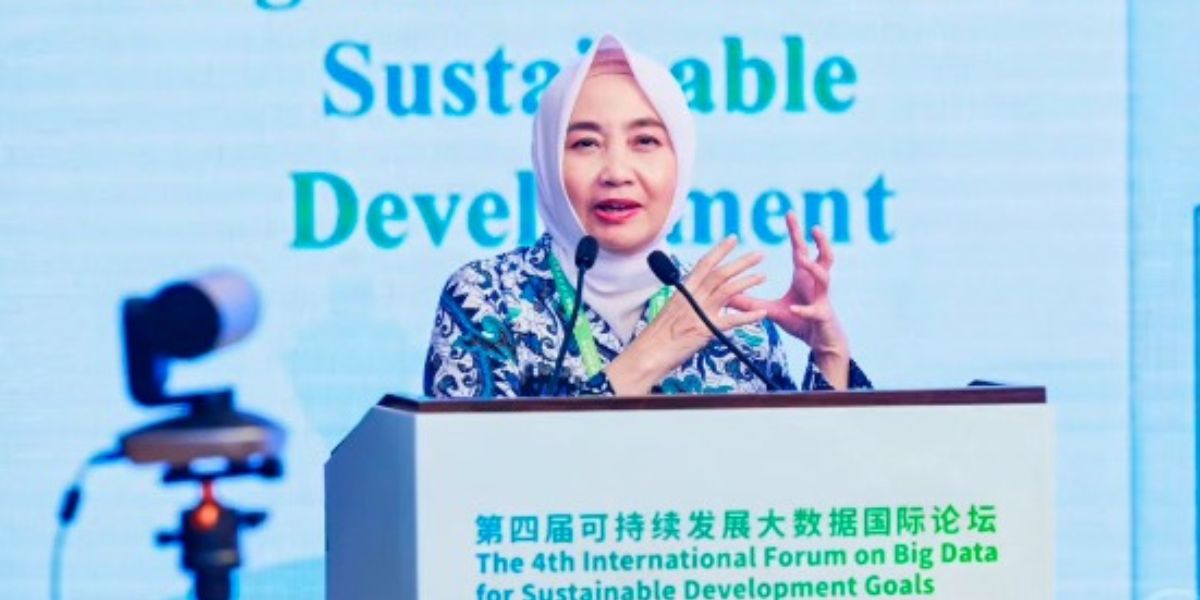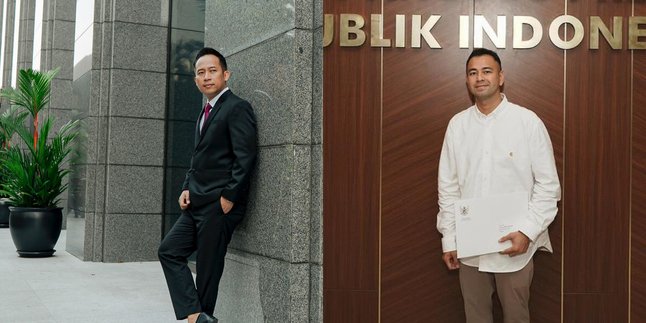Kapanlagi.com - Prof. Ir. Dwikorita Karnawati, M.Sc., Ph.D., or more commonly known as Prof. Rita, was born in Yogyakarta on June 6, 1964. She is an academic and technocrat who has made significant contributions to disaster mitigation in Indonesia.
Since November 2017, Prof. Rita has led the Meteorology, Climatology, and Geophysics Agency (BMKG), a strategic position that strengthens her commitment to facing disaster challenges.
Before serving at BMKG, Prof. Rita also played a role as the Rector of Gadjah Mada University (UGM), one of the leading universities in Indonesia. Her expertise in environmental geology and disaster mitigation has led her to impressive achievements in the academic and research world. She earned her Ph.D. in Earth Science from Leeds University, England, in 1996, marking the beginning of her brilliant journey.
Prof. Rita's research, particularly in disaster early warning systems—especially related to hydrometeorological disasters and landslides—has been recognized internationally. Thanks to her dedication, she has received various awards for her contributions to disaster risk reduction.
Not only that, but Prof. Rita is also actively collaborating with various international organizations, such as the World Bank, Japan International Cooperation Agency (JICA), and the British Council. Together with them, she has developed a multi-hazard early warning system that is crucial for enhancing the resilience of Indonesian communities to natural disasters.
With her extraordinary dedication and commitment, Prof. Rita continues to strive to make Indonesia more prepared to face disasters. Here is a brief profile of the extraordinary figure who dedicates her life to the safety and welfare of the community, as reported by Kapanlagi.com from various sources, Wednesday (6/11).
1. Education and Academic Career
Dwikorita's education began at SMA Negeri 1 Yogyakarta, before she continued to Gadjah Mada University and earned a Bachelor of Engineering in Geology in 1988. However, her passion for learning was unstoppable; she flew to Leeds University in England to study Engineering Geology, successfully obtaining a Master’s degree in 1992 and a Ph.D. in 1996.
With in-depth knowledge in the field of geology, Dwikorita not only became an academic but also an architect of real solutions for disaster mitigation. Her career began as a lecturer at UGM, which later led her to serve as the Rector of UGM from 2014 to 2017.
In that role, she led the largest university in Indonesia, with over 55,000 students, and strengthened research and development programs in the fields of disaster mitigation and geology.
2. Significant Contributions to the Disaster Early Warning System
Dwikorita has been a pioneer in the development of natural disaster early warning systems, both domestically and internationally. One of her most impressive achievements is the innovative research on community-based landslide early warning systems, recognized as one of the best in landslide disaster risk reduction by the International Consortium on Landslides (ICL) in 2011.
Not only that, she also plays an active role in creating a multi-hazard early warning system that integrates cutting-edge technologies such as Big Data, the Internet of Things (IoT), and Artificial Intelligence (AI).
As the Head of BMKG, Dwikorita leads innovative steps to strengthen weather forecasting and disaster mitigation strategies in Indonesia, making her an indispensable figure in efforts to protect communities from disaster threats.
3. International Role in Disaster Mitigation
On the international stage, the name Dwikorita shines as a prominent leader. Since 2015, she has held the position of Vice President of the International Consortium on Landslides (ICL), where she advocates for innovation by combining advanced sensor technology and human expertise to create more effective disaster early warning systems.
In 2019, her achievements became even more remarkable when she was elected as the Chair of the Intergovernmental Coordination Group for the Indian Ocean Tsunami Warning and Mitigation System (IOTWMS).
Through her collaboration with various international agencies, Indonesia is increasingly recognized as a pioneer in the development of disaster mitigation technology. It is no wonder that Prof. Rita is often invited as a keynote speaker at international conferences across different parts of the world, including the United States, Europe, Asia, and Australia.
4. Receiving International Awards and Honors
Dwikorita, a tireless figure in disaster mitigation efforts, has achieved remarkable accomplishments by receiving various prestigious awards, such as the Leverhulme Professorship Award from the University of Bristol and the senior Fulbright research program at San Diego State University.
Support from research grants provided by the World Bank and JICA further strengthens her innovative steps, including the development of a much-needed multi-hazard early warning system in Indonesia.
With an internationally recognized reputation, Dwikorita often serves as a speaker at global forums, where she shares valuable experiences and best practices in disaster risk reduction with participants from various countries.
5. Predictions for Indonesia Experiencing Higher Temperatures in 2025
Indonesia is predicted to experience hotter temperatures in 2025, a warning conveyed by the Head of the Meteorology, Climatology, and Geophysics Agency (BMKG), Prof. Ir. Dwikorita Karnawati, during an online press conference about the Climate Outlook 2025 on Monday (4/11/2024).
In her explanation, Dwikorita revealed that the average monthly surface temperature is expected to have an anomaly between +0.3 to +0.6 degrees Celsius, particularly from May to July.
With an average temperature increase of about 0.4 degrees Celsius, we must prepare for warmer and more intense weather amid a continuously changing climate.
"This means we will feel an increasing warmth, with temperatures rising by +0.3 to +0.6 degrees Celsius during that period," emphasized Dwikorita.
(kpl/rmt)
Disclaimer: This translation from Bahasa Indonesia to English has been generated by Artificial Intelligence.












